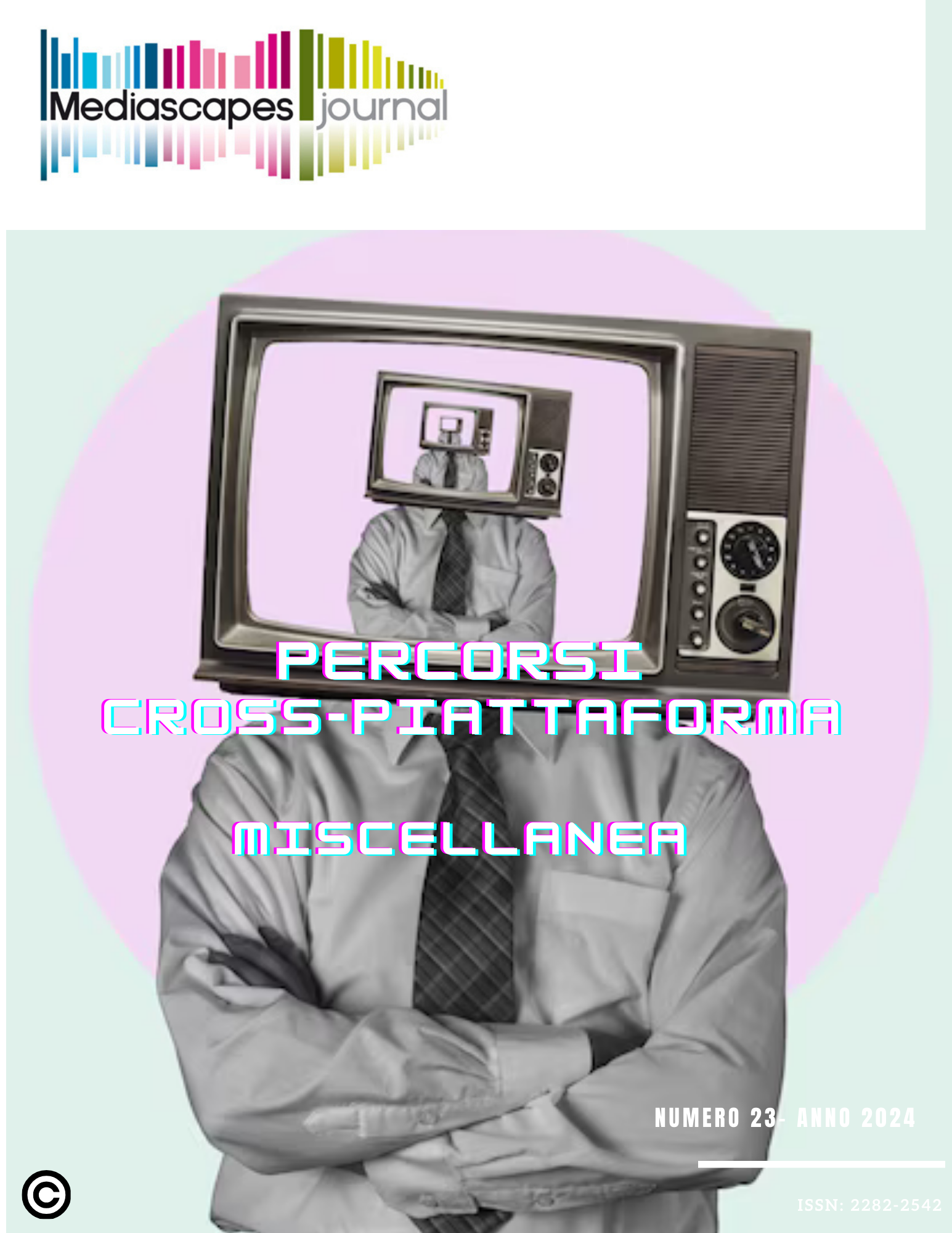AI e newsmaking
Un’indagine esplorativa nelle redazioni nazionali e locali italiane
Keywords:
hybrid journalism, generative AI, discursive construction of journalism, newsmakingAbstract
This article delves into the transformative impact of artificial intelligence (AI) on Italian journalism, providing an in-depth examination of how AI technologies are being integrated into and reshaping the journalistic landscape. Through a qualitative study, which includes 10 qualitative interviews with journalists, digital editors, and IT managers from leading Italian media companies, this research investigates the attitudes, expectations, and concerns surrounding AI adoption in newsrooms. The core of the study revolves around the nuanced perceptions and discursive frames that journalism professionals mobilize to describe the incorporation of AI into newsmaking. It is nearly impossible to investigate AI without considering the imaginations, perceptions, and expectations associated with it, especially considering two structural elements—opacity and communicative capacity—that make it particularly susceptible to distortions and uncontrollable interpretative projections (Milne, 2021). The centrality of discourse has been highlighted by the neo-institutionalist approach, which views journalism as a discursive institution founded on a complex set of rules, practices, and values that are constructed and legitimized through discourse (Hanitzsch and Vos, 2017). From this perspective, discursive legitimation represents both a process of internal organization of rules, practices, and values and a tool to confirm, defend, and claim the institution's reputation within society. The interviewees offer diverse perspectives on the potential of AI to revolutionize journalistic workflows by introducing efficiency and new capabilities, such as automated content generation and data analysis. However, rather than seeing AI as a replacement for human journalists, most view it as a complementary tool that could enhance the quality of news production and facilitate more in-depth journalism. Despite the recognized potential, the study highlights a prevailing sense of caution among the participants. Some express concerns about the ethical implications of AI in journalism, including issues related to transparency, risk of job displacement and the maintenance of professional standards in an increasingly automated environment. The article suggests the need for clear editorial strategies that transparently establish shared guidelines of AI use in newsrooms. It also highlights the necessity for significant technological investments by publishers to ensure that the use of generative AI is not left to the initiative of individual journalists, but that its adoption makes sense within a wider project of a rational, efficient, and shared restructuring of workflow processes. In this regard, it is imperative to recognize the need to invest in significantly enhancing the computer skills of journalists within a more comprehensive frame of AI literacy that is mindful of the ethical and democratic implications of these tools.
Downloads
Published
How to Cite
Issue
Section
License

This work is licensed under a Creative Commons Attribution 4.0 International License.
Mediascapes Journal is published under a Creative Commons Attribution Licence 4.0.
With the licence CC-BY, authors retain the copyright, allowing anyone to download, reuse, re-print, modify, distribute and/or copy their contribution. The work must be properly attributed to its author. It should be also mentioned that the work has been first published by the journal Anuac.
Having published these contributions for the first time, Mediascapes Journal will have the right to publish them integrally or partially as reprints or possibly as part of a thematic issue, in both digital and printed format.
It is not necessary to ask further permissions both to author or the journal.


